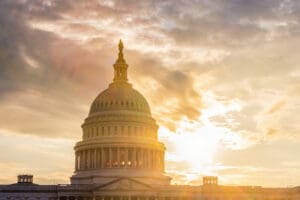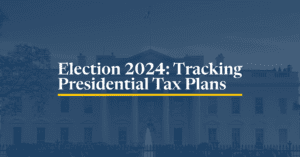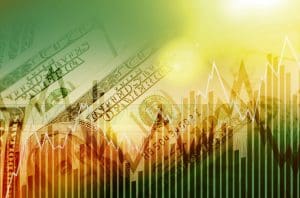The mission of our federal program is to promote tax and fiscal policy that leads to greater U.S. competitiveness, higher economic growth, and improved quality of life for all taxpayers.
We have several projects, such as the Growth and Opportunity Agenda and Options for Reforming America’s Tax Code, which help us educate taxpayers, journalists, and policymakers on how the U.S. tax system works and the impact of federal tax changes on taxpayers and the economy.
Our Center for Federal Tax Policy hosts Tax Foundation University, a crash course designed to educate congressional staff on the economics of tax policy. Our experts are also a go-to source in the media and are frequently cited in top outlets like The Wall Street Journal, The New York Times, and The Washington Post. See Our Experts
Economic and Tax Modeling
Since 2012, we have used our Taxes and Growth (TAG) macroeconomic model to analyze dozens of legislative and campaign tax proposals, including every major tax plan put forth during the 2016 presidential campaigns, the House GOP’s 2016 Tax Reform Blueprint, the Tax Cuts and Jobs Act, and President Biden’s tax reform agenda. See Our Economic and Tax Modeling
For a look at where tax modeling started, explore the extensive body of work from the Institute for Research on the Economics of Taxation (IRET), the think tank that pioneered dynamic tax modeling. Explore the IRET Archives
Featured Issues
Tax Cuts and Jobs Act President Biden’s Tax Plans 2024 Tax Plans
Cost Recovery | Taxes & Inflation | Taxes on Savers & Investors | Tariffs & Trade | Carbon Taxes











